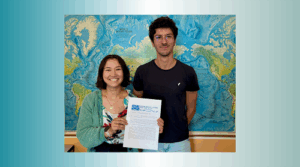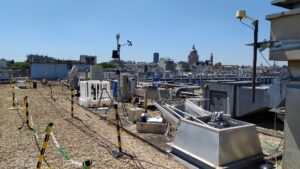Séminaire
Contrasting Productivity and Carbon Export Regimes from Autonomous Observations in the EXPORTS Field Campaigns
Shawnee Traylor
Séminaire du LOCEAN.
Description
The expansion of autonomous observation platforms offers vast opportunities for analyzing ocean ecosystems and their role in carbon export. As part of the EXport Processes in the Ocean from RemoTe Sensing (EXPORTS) field campaigns, we autonomously measured the productivity regimes in two contrasting endmember sites.
The first campaign occurred in a high nutrient, low chlorophyll site in the subpolar North Pacific (NPac) near Ocean Station Papa, characterized by iron limitation and a highly regenerative regime, while the second captured a springtime bloom in the North Atlantic (NAtl), which typically drives efficient export of productivity.
Using a combination of floats and gliders equipped with biogeochemical sensors, gross primary productivity (GPP), net community production (NCP), and an organic carbon flux (fCorg) were quantified and compared to ship-based measurements. The NAtl site demonstrated higher cruise-period productivity, with roughly 5x the GPP and 14x the euphotic zone NCP seen in the NPac.
Greater export efficiency in the NAtl was reflected in numerous indices, such as the ratio of new production to NPP (ef-ratio; NPac: 0.23; NAtl: 0.74), the ratio of sinking particulate organic carbon (POC) to NPP (ez-ratio; NPac: 0.35; NAtl: 0.70), and total cruise-integrated 100m fCorg (NPac: 87; NAtl: 514 mmol C m-2).
Together with POC flux derived from thorium-234 measurements, we infer that observed low NCP was almost entirely routed to sinking POC in the NPac, while the much higher NCP in the NAtl resulted in near equal proportions routed to dissolved organic carbon production and sinking POC flux.
Shawnee Traylor, Woods Hole Oceanographic Institution, Department of Marine Chemistry and Geochemistry & Massachusetts Institute of Technology, Department of Earth, Atmospheric, and Planetary Sciences.
Informations supplémentaires
Lieu
LOCEAN
Sorbonne Université, Campus Pierre et Marie Curie (Jussieu)
Couloir 45-55, 4e étage, pièce 417






